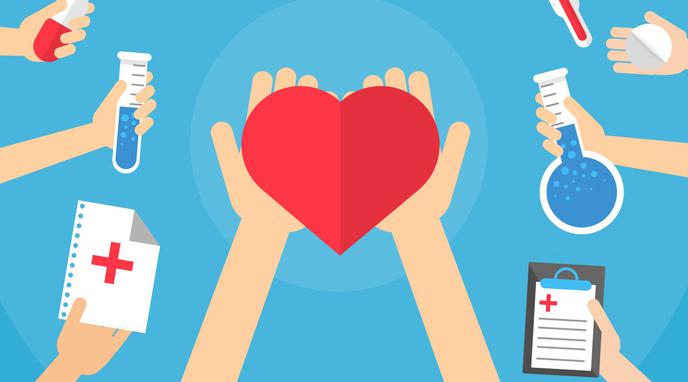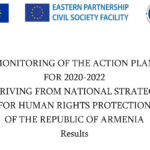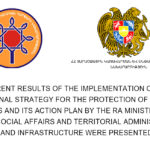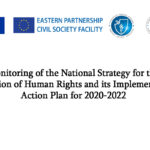Government’s Commitments in the Field of Health Care, and the expected Results

According to Article 85 of the RA Constitution, “everyone shall, in accordance with law, have the right to health care.”
One of the main goals of the state policy of the Republic of Armenia is the implementation of programs for the maintenance and improvement of the population’s health, the creation of effective and affordable medical care in the economic, social and cultural spheres.
According to the “National Strategy for the Protection of Human Rights and its Implementation Action Plan for 2020-2022”, approved by the Government of the Republic of Armenia on 26 December, 2019, by the Decision No. 1978-L, the actions , among other things, are aimed at improving the protection of this right, which will be implemented through certain measures, including the improvement of legislation, technical replenishment and raising public awareness.
 The objective of the strategy is to strengthen the mechanisms and means for more effective implementation of the right to health care, and the goal is to create the necessary infrastructure for the right to health care, to improve the provision of quality health care and to raise public awareness.
The objective of the strategy is to strengthen the mechanisms and means for more effective implementation of the right to health care, and the goal is to create the necessary infrastructure for the right to health care, to improve the provision of quality health care and to raise public awareness.
In order to achieve the above-mentioned goal and to solve the problems, the following groups of measures are envisaged in the 2020-2022 action plans:
- To raise the level of public awareness about the medical services guaranteed by the state.
- Increase the number of institutions providing psychiatric and rehabilitation services to children.
- Raise public awareness about palliative medical care and services.
- Implement ongoing educational programs for palliative medical care and service management, including pain syndrome management (including legal regulations of the field) continuing education programs for health care professionals and students.
- Ensure the provision of appropriate medical care and services to persons deprived of their liberty and those with hepatitis C.
- Raise awareness about health care and the right to medical care (including sexual and reproductive health), including for people with disabilities, as well as those in penitentiaries and psychiatric institutions.
- Conduct trainings on the themes covering the features of medical care and services for people with disabilities.
The measures are expected to reduce the number of cases of violations of the right to health care and services guaranteed by the state, including violations of the right to mental health of children, as well as increase access to rehabilitation care.
In addition, it is expected that the population will be informed about palliative medical care and services; related rights; violations of patients’ rights related to palliative medical care and services, and prescribing drugs and psychotropic related drugs will be reduced; the number of people deprived of liberty, who have hepatitis C, will decrease. In addition, the number of cases of early prevention of the development of diseases will increase, and the number of cases of improper medical care and services for people with disabilities will decrease.
This publication has been produced in the scope of the “Promoting Direct Democracy for Strengthening Human Rights in Armenia” project implemented in the framework of the “Eastern Partnership Civil Society Facility” project funded by the European Union
The contents of this publication are the sole responsibility of the fellow for the “Promoting Direct Democracy for Strengthening of Human Rights in Armenia” project and do not necessarily reflect the opinion of the European Union.










